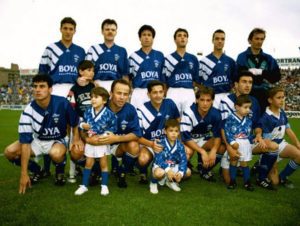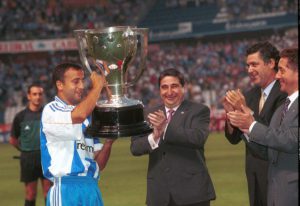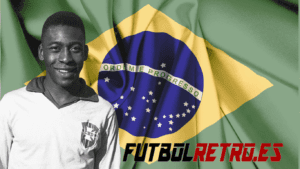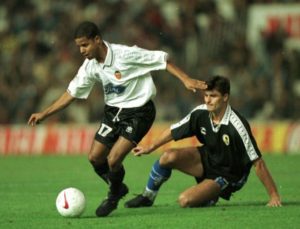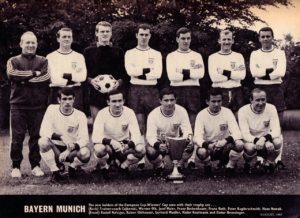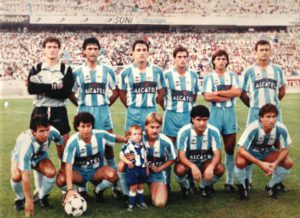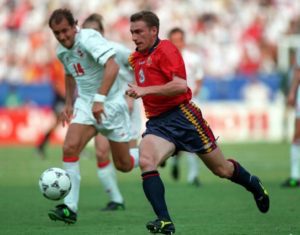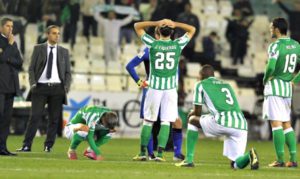Subsidiaries' totaled’ First Division
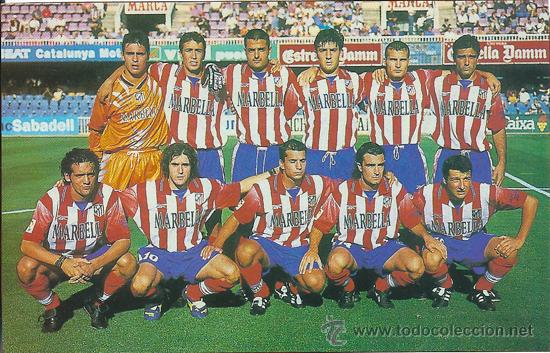
Last updated June 7, 2020 by Javier Argudo
Throughout the history of Spanish football they have been subsidiaries Historic. Large teams, despite having very young players whose sole purpose was formed to make the leap to the first team of their club, managed great success. We go over some of them and their exploits comprising, even, promotions First division.
CD MESTALLA
Valencia's subsidiary It was the first to achieve great sporting success in Spanish football. The second team managed Valencia CF, no more no less, a promotion to First Division. ran the season 1951-1952 when the group led from the bench by Carlos Iturraspe ended the competition as second-ranked South Second group, only surpassed by the CD Málaga.
The Mestalla promoting disputed historical and rise against Racing Santander, Sporting Gijon, Logroñés, Ferrol and Alcoyano making up with full honors. But nevertheless, President of Valencia CF, the historical Luis Casanova, He decided it was unethical for a filial play in the top flight against their 'older'. Thus, the subsidiary that He continued in the silver category.
Some of the most prominent players were that template: Timor, Sendra, Socrates, Mangriñán, Pla, Hand O Powerful. In fact, the latter two, not only they reached the first team but went international with Spain.
CD CONDAL
It took four years to have a new 'problem’ with the subsidiaries. This time, the Spain Industrial, at that time the second team FC Barcelona, He was promoted in the campaign 1955-1956. The Catalan team finished third in the group and South Second Division, equal to the Mestalla few years earlier, He disputed the promotion and managed to climb.
This time the problem was rectified. The club changed its name CD Condal Y, somehow, he split the club to play in the top flight of Spain. Unfortunately for them, passing through the elite was short-lived and was only one season. In fact, He dropped after falling defeated in Mestalla Valencia CF.
CASTILLA AND BILBAO ATHLETIC
This case must deal together as occurred in the same season. The subsidiaries of Real Madrid and Athletic Club de Bilbao They staged a historic duel in the campaign 1983-1984. As we explained in another article, that year both teams had players who did much level career First years later.
The Castile with the famous Quinta del Vulture (Butragueño, Míchel, Martin Vazquez, Pardeza and Sanchis) He finished as champion of silver division, something that has only happened this time. Meanwhile, the Bilbao Athletic He had in its ranks the Salinas brothers (Patxi and Julio), Andrinúa, Pizo Gómez… the locals were seconds.
The match between the two in the Santiago Bernabeu He featured a audience of 80.000 viewers. The victory was for the meringues with a lone goal Butragueño. ‘The vulture’ League ended with 21 surpassed only goals, precisely, by Julio Salinas he scored 24.
Both of them subsidiaries They made merit qualifiers but gave up their seats to Hercules, Racing and Elche (third, fourth and fifth respectively).
ATHLETIC MADRILEÑO
Although his name at that time was Atletico Madrid B, the name of the subsidiary has been historically colchonero Atlético Madrileño. In the season 1998-1999, Atletico had a template that football embroidered Second.
Ruben Baraja, Gaspar, Sequeiros, Luis Tevenet… They achieved the second place behind Malaga. Filial Athletic League ended as the highest scoring team but did not enjoy the climb cattle in the field. Numancia, Sevilla and Rayo Vallecano were the other teams that made the leap to First with the aforementioned Malaga was the champion.
BARCELONA ATLÈTIC
Much more recent is the latest feat of a youth team in our league. Barça B, directed by Luis Enrique, She obtained in the campaign 2010-2011 their best ever since finishing third in the silver category. Just one year before, the 2009-2010, that third place would have meant the ascent to First, but nevertheless, in this 2010-2011 the new system of playoffs between teams who finished between third and sixth premiered. In any case, to the being a subsidiary, He did not dispute the phase of ascent.
That team featured the likes of Marc Bartra, Sergi Roberto, Nolito, Jonathan Soriano, Thiago and Rafinha, etc. equipazo.

